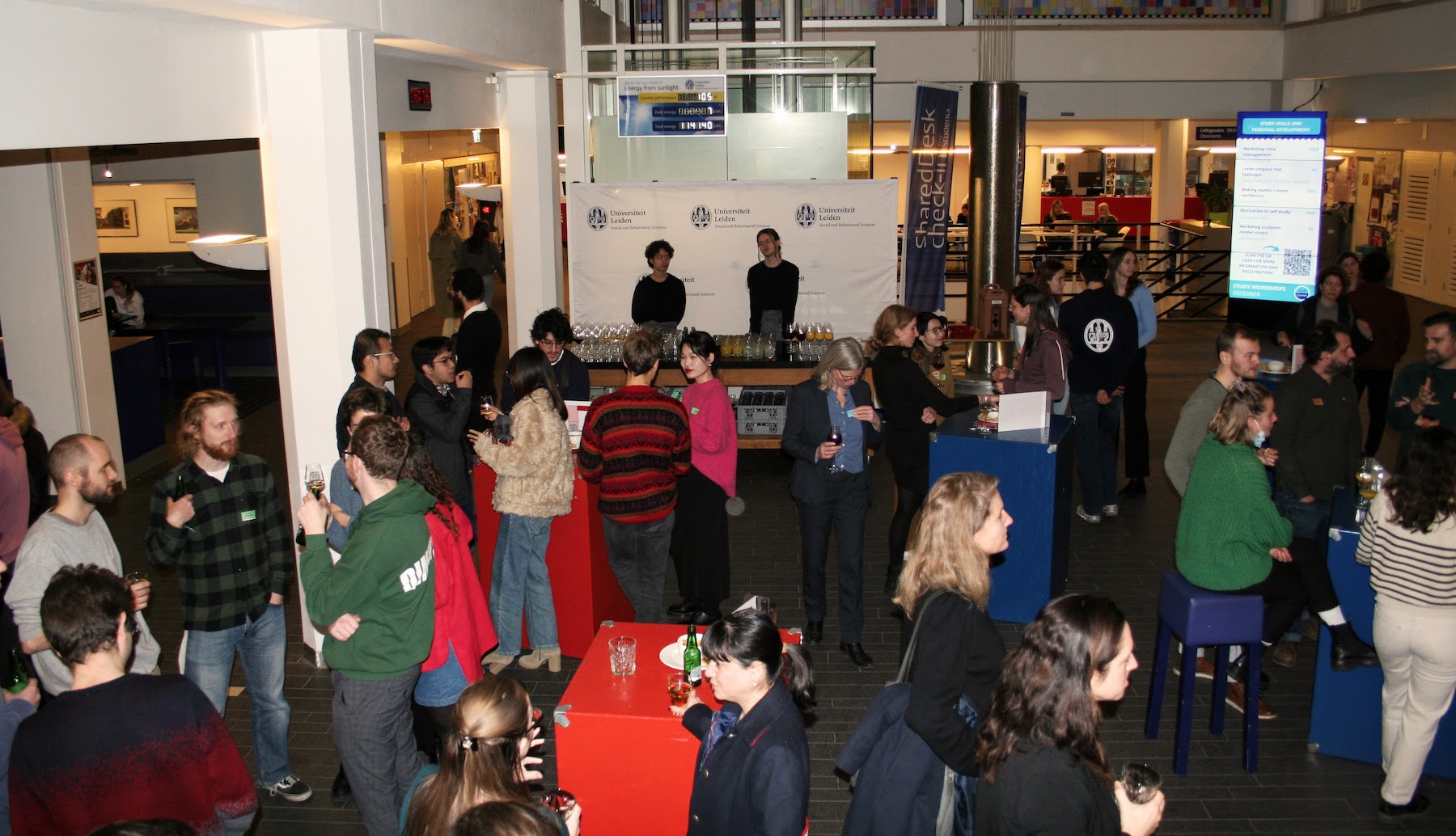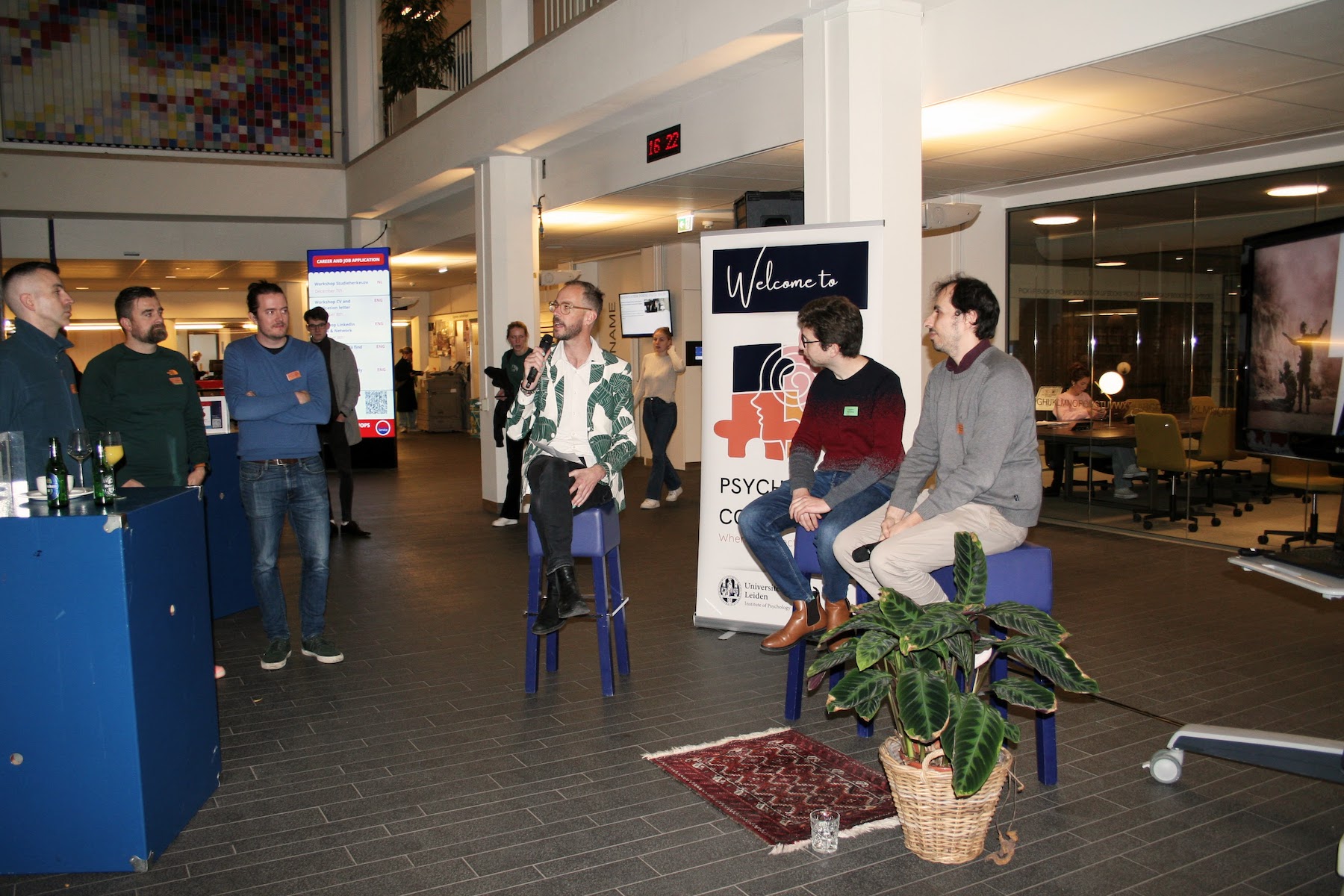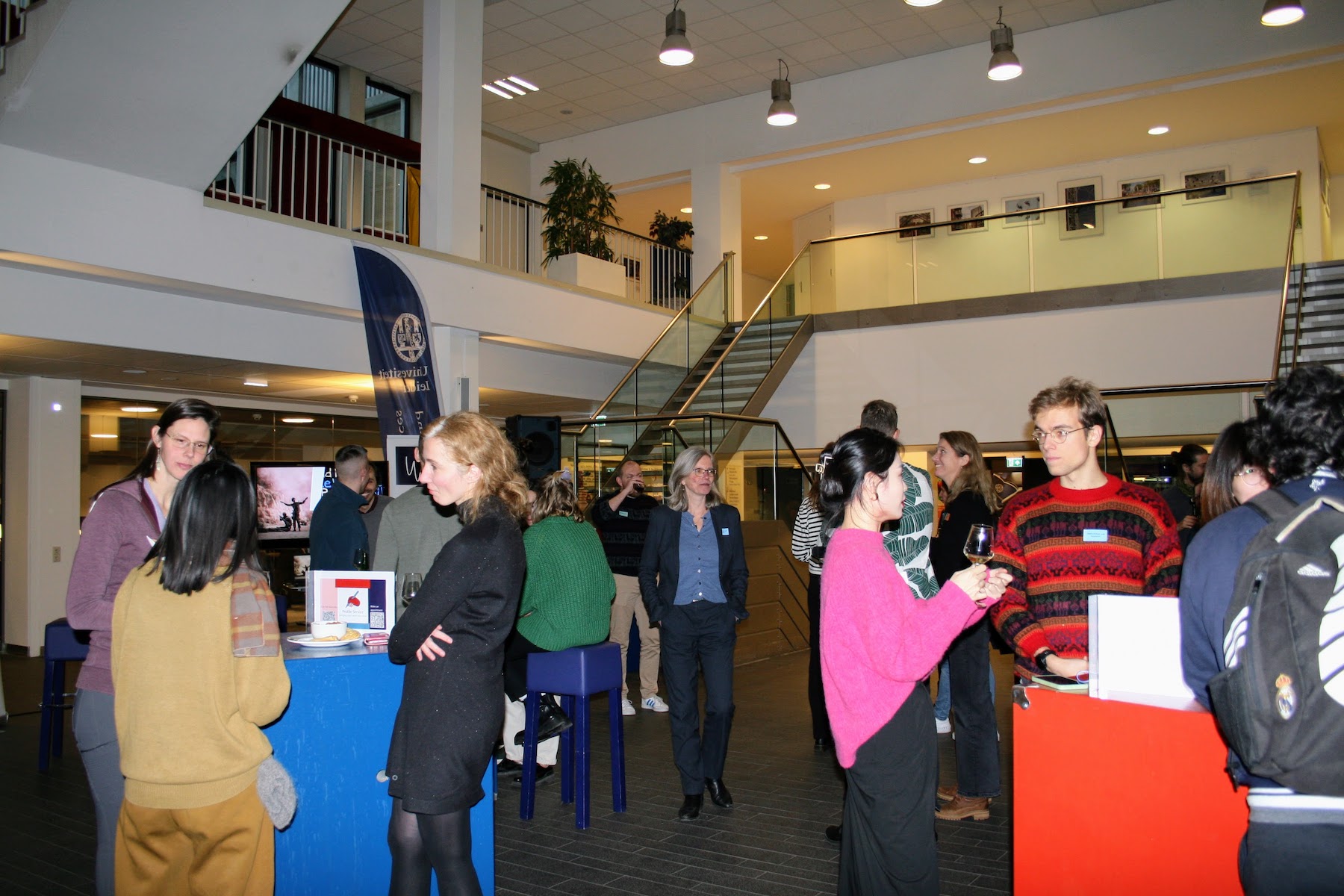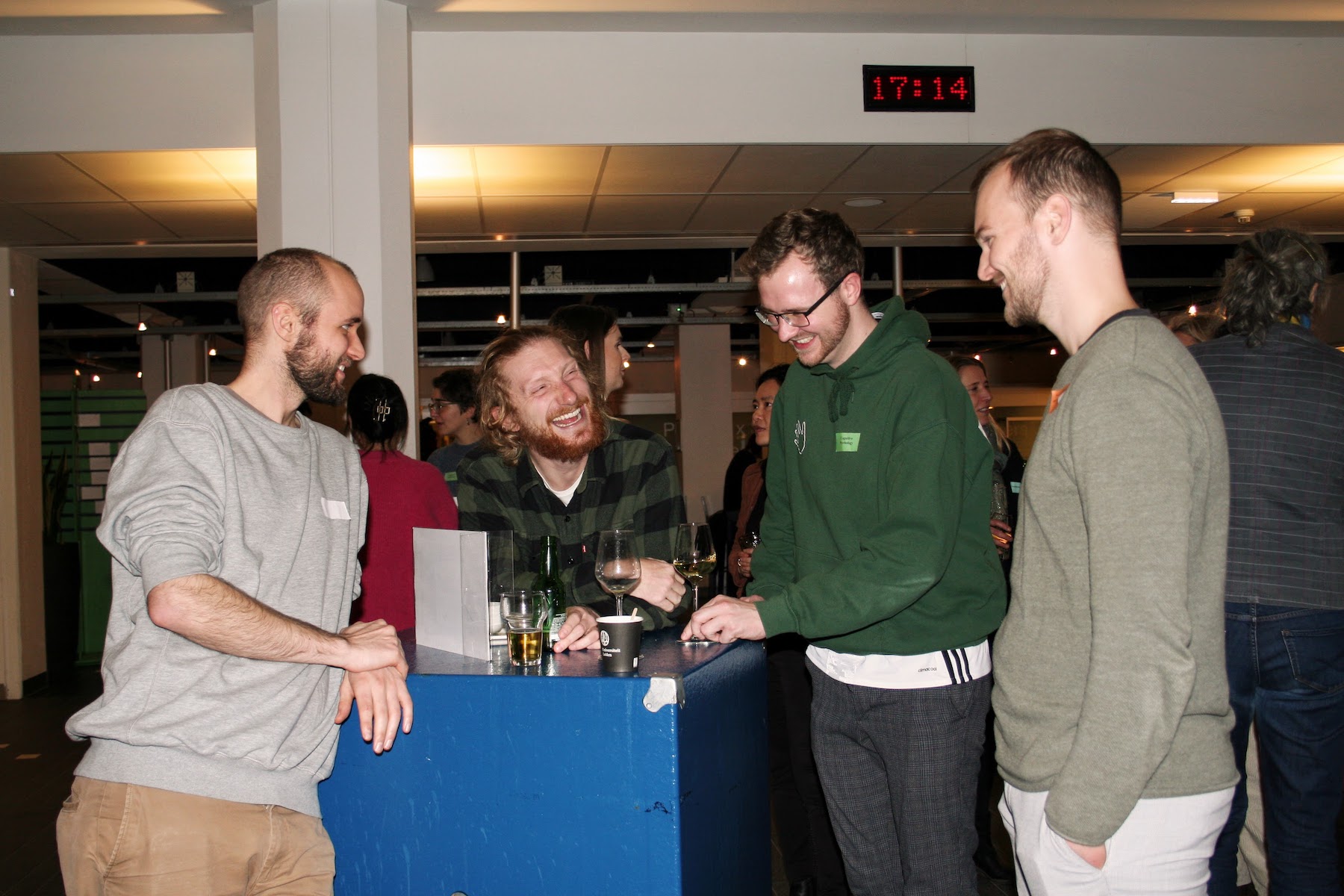
Psychology Connected on why we fight, and how to find peace again
After discussing the climate, our psychologists once again broach a big topic: war and peace. Or, perhaps: cooperation and conflict. For no matter how benevolent our intentions towards each other, friction never seems far away. Researchers Angelo Romano and Tom Roth offer explanations and practical advice.
Michiel van Elk opens this second Psychology Connected with a question scientists have been pondering on for centuries: are we humans mostly selfish, and do an occasional good deed in this quest for self-enrichment, or are we inherently good, and occasionally hurt others in our attempt to do the right thing? However optimistic your view of humankind may be, we cannot deny that tension, conflict and even war are ever present. Why is that? Social psychologist Angelo Romano and behavioural biologist Tom Roth share their perspectives.

Cooperation in monkeys
Both agree: cooperation is part of our nature. 'And for good reason,' says Roth, who researches social behaviour in great apes. 'By working together, primates increase their chances of survival. You can measure the benefits of cooperation by looking at how successful the offspring of an individual is, or by measuring their longevity.'
The idea that primates are constantly at each-others’ throats is old-fashioned, Roth stresses. So is the idea that a strong hierarchical structure causes great tension in a group. Roth: ‘You actually see less aggression in troops where there is an established dominance hierarchy. This is because expectations are clear, nobody is in doubt about their position in the group.'
‘So, is there some wisdom in introducing a bit more hierarchy into the institution of FSW?’ Roth's idea mostly leads to laughter. Not surprising either: it is better not to copy practices from the ape world one-to-one to today's human society. Better to do research on both, looking for similarities and differences.
Why we are pro-social
Angelo Romano therefore turns in his research to the 'human world', and specifically to cooperation strategies between people. What factors contribute to people, groups and countries getting along with each other? One way he does this is by having research participants play economic games in which they have to trust others to reach a good outcome, such as the prisoner's dilemma.
How successful people are in collaboration is partly determined by how pro-social they are. 'This depends in part on culture: if you have always been taught to put the collective interests above your own, you are more likely to exhibit pro-social behaviour,' explains Romano. Added to this is a rather 'selfish' factor: reputation. 'Fear of reputational damage also increases the likelihood of acting socially. So here it matters whether you are anonymous, or whether everyone can see you. Then the consequences of behaving anti-social are greater.' Surely sneaking a wallet you’ve found on the street into your own pocket is a bit easier when no one is looking.
When things go awry
But no matter how social you are, or how afraid you are of losing your reputation: sometimes arguments do arise. According to Roth and Romano, conflicts often arise from misunderstanding, from having the wrong idea of the other person’s thoughts and motivations. Too quickly, we think we know what’s going on, when in fact, we don’t. Romano: 'You also see this in research; for example, people often think that people from other countries are not willing to help them, even when they are.' It’s our job to relearn a new habit: trusting each other, maybe even before we have sufficient proof that it’s the right thing to do. Romano: 'It helps for collaboration if people start on good terms, then it becomes easier to resolve conflicts later.'
Roth ends the panel with a last piece of advice: ‘When you want to resolve a conflict, meet each other in person to talk it out, and don't wait too long. Since the pandemic, we communicate even more through e-mail, but settling an argument via e-mail is not a good idea.' Rather than sending a vicious message back to that colleague when you feel attacked, set up a time to meet each other. It’s key to good future cooperation
With that idea in mind, the hour of drinks and conversation that follow make total sense.

The next Psychology Connected on 9 March 2023 at 16:00 and is about human mistakes (in science). Keep an eye on the event page for the latest info.
Missed the first edition on climate change? Read the recep here.










